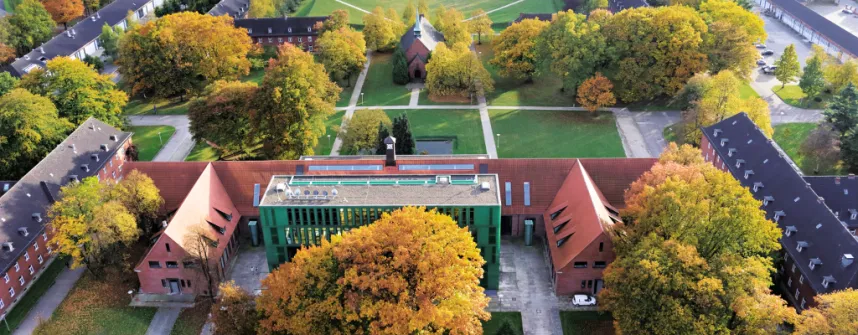Practiced environmental protection: Jacobs University Bremen's energy management certified according to the latest DIN standard
March 11, 2020
LED lights instead of fluorescent lamps, motion sensors for heating control in lecture halls, new ventilation systems in laboratories: At Jacobs University, environmental protection is a top priority. This has now been officially confirmed to the international university. The experts for immission control and environmental reports of the Berlin-based company uppenkamp + partner have certified the energy management of Jacobs University according to the latest standards and attested that the university meets the highest requirements.
The standard with the designation "DIN EN ISO 50001:2018" is stricter and more comprehensive than all its predecessors. Anyone who wants to meet it must make their energy consumption traceable, improve it continuously and have it checked by experts. "As a university and one of the largest employers in northern Bremen, we feel obliged to set an example in the field of energy efficiency," said Jens V. Dünnbier, member of the university's management board. "This topic is important to us. The efficient and sustainable use of resources also plays an important role in many of our interdisciplinary study programs".
The Münster-based energy consulting company Müller Beckmann supported the university's facility management team in implementing the specifications. In 2018, Jacobs University consumed 6.7 million kilowatt-hours of electricity, which corresponds to the consumption of 1,520 single-family homes. In addition, the university consumed around 19 million kilowatt-hours of natural gas. However, the largest energy consumers are not the more than 1,500 students, of whom over 1,000 live in the four residential colleges. Most of the electricity is needed for research; for the laboratories with their high-tech equipment, the air-conditioning and cooling systems.
Most of the energy comes from two gas-operated cogeneration plants on campus, which produce heat and electricity. "We are largely self-sufficient in our energy supply, many months we even sell electricity," explained Ulf Krause, Head of Facility Management at the English-language university.
LED lights instead of fluorescent lamps, sensors in lecture halls that only turn up the heating when people are in the room, or the installation of new ventilation systems in laboratories are some of the measures that Jacobs University has taken. Although most of the more than 30 buildings date back to the 1930s, they are still very well insulated. Heating costs have been reduced, for example, by installing new windows. "Our goal is to keep our energy consumption stable in the future – despite further growth in all areas," said Krause.
Many students are also committed to environmental protection, for example in the Environmental Club of Jacobs University. "We regularly exchange ideas with the students and discuss topics such as possible savings in heating energy or the use of reusable cups," said Dünnbier, who is responsible for Campus Operations at Jacobs University.
At the beginning of each new academic year, the university trains its students, who come from over 120 countries, in energy and environmental awareness. "For many of them, for example, the waste separation they learn in Germany is completely new," explained Dünnbier. The careful and sustainable use of resources is a permanent topic at Jacobs University: "Environmental protection and energy efficiency are not only on our agenda every two years, shortly before certification is due, but every day."
About Jacobs University Bremen:
Studying in an international community. Obtaining a qualification to work on responsible tasks in a digitized and globalized society. Learning, researching and teaching across academic disciplines and countries. Strengthening people and markets with innovative solutions and advanced training programs. This is what Jacobs University Bremen stands for. Established as a private, English-medium campus university in Germany in 2001, it is continuously achieving top results in national and international university rankings. Its more than 1,500 students come from more than 120 countries with around 80% having relocated to Germany for their studies. Jacobs University’s research projects are funded by the German Research Foundation or the EU Research and Innovation program as well as by globally leading companies.
For more information: www.jacobs-university.de
Facebook | Youtube | Twitter | Instagram | Weibo
Contact:
Melisa Berktas | Corporate Communications & Public Relations
m.berktas [at] jacobs-university.de | Tel.: +49 421 200-4135
